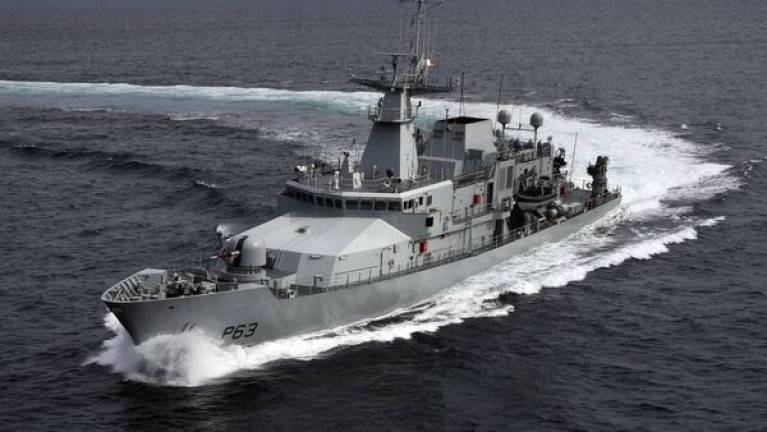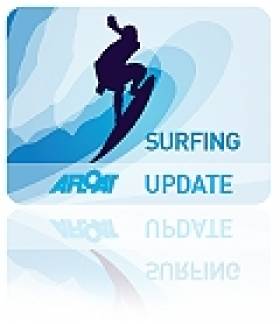Displaying items by tag: South America
Naval Service At Forefront in the Battle Against 'Narco' Submarines
A top level EU official has informed the Naval Service of a warning that it faces a “game-changer” in drug trafficking with the use by cartels of “narco submarines” to transport narcotics into Europe.
Michael O’Sullivan said the first-ever discovery in Europe of semi-submersibles, sent across the Atlantic by South American drug lords, also poses a security threat with the potential the vessels could be used by terrorists to carry and deploy explosives.
As the Irish Examiner has documented in recent months, a manpower crisis affecting the naval service has seen a number of vessels unable to go out on patrol.
Mr O'Sullivan, the executive director of the EU Maritime Analysis and Operations Centre — Narcotics (MAOC-N) said Europe will be “flying blind” if the Irish Naval Service and the Air Corps do not deploy their ships and their planes to track vessels.
MAOC-N is made up of seven EU member states, including Ireland, and targets the transportation of drugs — predominantly cocaine and cannabis — across the Atlantic and into Europe.
The newspaper has more to report here.
French Guiana Well is Dry Says Tullow Oil
#Oil - Tullow Oil's shares dropped more than 6% in London trading early last week with the news that its prospect in the Atlantic off French Guiana is dry, according to The Irish Times.
The Irish-founded oil exploration firm says it encountered a number of oil shows in reservoir quality sands at its Zaedyus-2 well in the waters north of Brazil, but it "did not encounter commercial hydrocarbons".
The result was described as "very disappointing" by Investec Securities analyst Stuart Joyner - though better signs have been seen at the nearby Zaedyus-1 well, drilled by Tullow with partners Royal Dutch Shell and Total at a cost of $250 million.
And as previously reported on Afloat.ie, the UK-based company's prospects off the Ivory Coast and Ghana have proven encouraging for future exploration.
Irish Six in Peru for SUP and Paddleboard Worlds
#SURFING - A six-strong Irish team is in Peru to compete in the inaugural World Stand-Up Paddle and Paddleboarding Championships, which commence today (19 February).
The surfers have travelled at their own expense to the Peruvian capital Lima to take part in the International Surfing Association-sanctioned event, where they will contest against paddleboarders from 19 other countries.
“It is the first of its kind and we wouldn’t want to miss out," team member Paul Byrne told TheScore.ie. "The fact that it has been recognised enough to hold an international competition means stand-up padding (SUP) is here to stay.”
Dubliner Byrne first got involved in SUP in Australia, and found on his return to Ireland that he and his friends didn't need to seek out the popular surf out west to keep up with the sport - the swell produced by ferries in Dublin Port is just what they needed (see video of Dave Owens above).
Byrne joins Owens, Finn Mullen, Ed O'Farrell, Keith Gorman and Jane Downes in South America for the World Championships, which run till 25 February.
“We been competing in Europe," he says, "but it is sure to be tough against surfers who are sponsored to do it for a living.”
































































